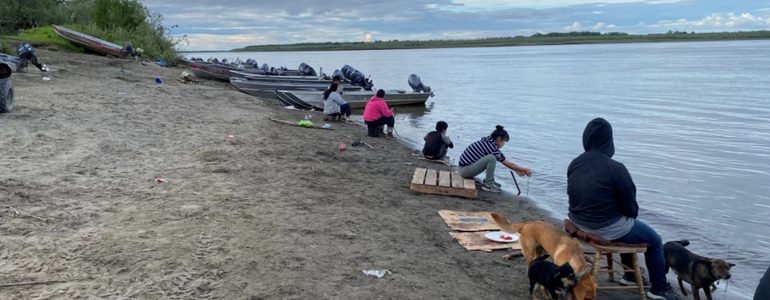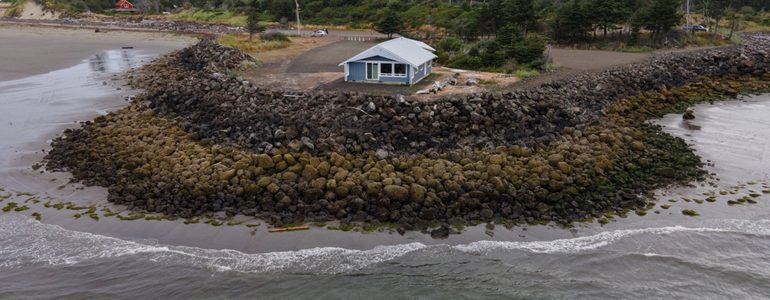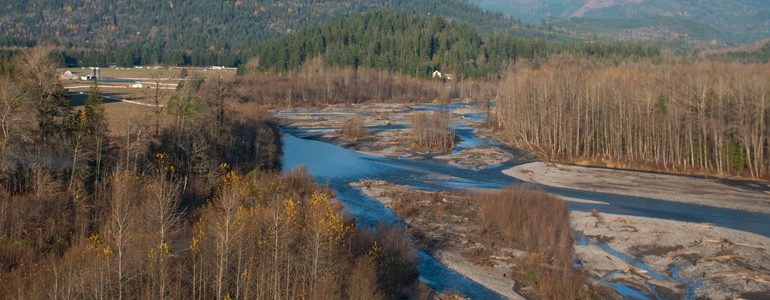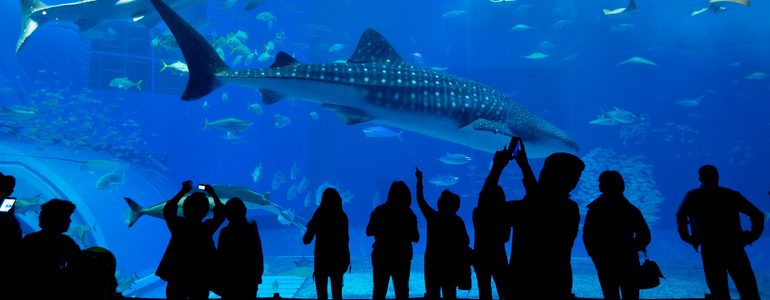Cohort 4 Projects
The EarthLab Innovations Grant Program was launched in 2019 to fund actionable environmental research. The 2023-24 EarthLab Innovation Grants program received 23 high-quality proposals for research at the intersection of climate change and social justice. Proposals were evaluated by an 11-member review committee that included faculty and staff from several disciplines and community members from outside the UW. The following programs were each awarded up to $75,000 to generate equitable and actionable science and knowledge that make a positive impact on people and communities. The award period lasts 17 months and final products are due by September 25, 2024.
Centering Self-Determination as a Core Research Principle in a Multidisciplinary Partnership with the Akiak Native Community to Promote Climate Justice, Water Security and Indigenous Knowledge Systems
Tribal self-determination is pivotal to achieving climate justice. Climate change coupled with inadequate infrastructure have disproportionately impacted people from underserved communities, as is the case for the Akiak Native Community (ANC). Due to the increasing frequency of microbial water contamination exacerbated by temperature rise and fluctuating precipitation patterns, this community experiences water insecurity. Previous research illustrates that water samples collected from the Kuskokwim River (KR), which is used for subsistence, had excessively high mercury levels compared to the regional baseline levels, but no data has been gathered for microbial contaminants. Regarding drinking water, informal interviews conducted by our research team, with community members, indicate that their use of a rainwater cistern is well received by many households, but they are still concerned about the quality of tap and river water. The main goals of this work are to meet the ANC’s water security priorities by establishing baseline levels of E.coli and Total Coliforms (TC) and improving their governing body’s understanding about the community’s drinking water quality perceptions while promoting self-determination.
Supporting Tribal-Led Salmon Monitoring Using Computer Vision
Pacific salmon are a vital part of Indigenous cultures and a keystone ecological species throughout the Pacific Northwest. In Washington, Tsuladxw [salmon] are the most important cultural and sacred food of the Sahkuméhu [Sauk-Suiattle people], who consider them their relatives under the water. The Sauk-Suiattle Indian Tribe co-manages the Skagit River salmon with the state. Currently Sauk-Suiattle fisheries managers depend on state-led helicopter surveys of salmon spawning grounds to estimate population sizes and set harvest guidelines. Climate change impacts efforts to accurately estimate the Skagit River salmon population. In recent years, helicopter surveys have not been possible due to water conditions on survey days. To address this, the Sauk-Suiattle Indian Tribe has initiated a program to begin their own drone-based aerial salmon survey, currently these surveys rely on human counting of nests from drone video, which is time-consuming and difficult work.
Coastlines – Camera – Action: Community-Driven Research for Adapting to Willapa Bay’s Rapidly Changing North Shore
“Coastlines – Camera – Action” combines social science and coastal engineering with community art and photography. Partnering with activist group WashAway No More, this project recruits community members to engage in focus groups that use existing community-submitted photographs from the Willapa Bay’s North Cove beach “Art Walk” photo stations to spur discussion about the impacts of beach erosion and the equitability of mitigation actions, and to solicit research questions. Assisted by the local drainage district Commissioner, photo stations will be modified to include CoastSnap, an internationally used, semi-automated image assessment tool to answer the community-identified scientific questions about how the beach is changing and how mitigation efforts impact beach stability. Results will be presented as an interactive display in the community center, with the goal to provide tools and information helpful for securing funding for future community-led adaptive management projects and monitoring stations.
Cultivating Transdisciplinary Support for Equitable and Resilient Floodplains
In 2021 a massive flood on the Nooksack River left a trail of destruction in its wake. Floods are the most expensive natural hazard in Washington State, a risk that is exacerbated by climate change. Current flood response, recovery, and planning systems are not neutral, favoring some interests over others. This paradigm in turn shapes norms for planning, design, and engineering responses, which can perpetuate interrelated social and ecological challenges. This project focuses on the lower Nooksack floodplain, supporting an existing value planning process convened by the Floodplain Integrated Planning (FLIP) team and its associated Steering Committee (FLIPSC) in Whatcom County. By adding this diverse team of academic researchers as participants in the value planning process, this project intends to elevate and expand the realm of potential opportunities, engage additional skilled and previously untapped capacity, reflect back with specific insights including new terms or conceptual framings, and identify additional research that could help support community-identified priorities.
A Collaborative Approach Preparing and Protecting At-Risk Communities from the Impacts of Climate Change in North-Central Washington
Rural communities in north-central Washington are impacted by several of the most severe climate impacts, including wildfires, smoke exposure, and extreme heat. During the summer of 2021, this region was inundated with smoke while also dealing with record-high temperatures. Despite this, there is minimal engagement with at-risk populations regarding how to mitigate the health effects of these climate impacts. This project focuses on addressing communication around the health impacts of smoke exposure, and defines at-risk populations both as those vulnerable to the health impacts of smoke from both wild and prescribed fires, and those who do not have the adaptive capacity to avoid increased risk. This project brings together community leaders and stakeholders in north-central Washington to form a Community and Climate Impact Hub that will be co-run and organized with our community partners, Wenatchee CAFE, with the intention of developing a cohesive and consistent group to collaborate far into the future.
Increasing Environmental Connection, Literacy and Engagement through an Art + Science Collaborative Education Practice
As the country comes to a reckoning on education and the environment, we are forced to interrogate the historic events that have led to such crises and how we can support inclusive solutions. Covid-19 has offered us an unprecedented glimpse into the challenges students face in the K-12 education system. It has also profoundly impacted socio-economically disadvantaged communities through the exposure of crippled or missing infrastructure. These same communities have been deliberately disconnected from building relationships with the natural world. In the face of complex problems like climate change, which will disproportionately impact these communities, we must act urgently to support the students who have historically been excluded from environmental science education. This project starts with reconnecting community to environment, followed by engaging learners dynamically through the co-production of place-based knowledge. Partnering with Sea Potential and Black in Marine Science, our team of scientists and digital arts experts will co-produce an arts based learning approach to increase environmental literacy in the communities most regularly overlooked.





